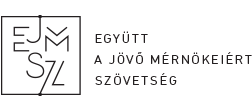VISION
We establish connections between the young and talented future engineers, the institutions providing knowledge and education for them, and the business companies that will employ them, so that there will be greater numbers working in the fields of engineering and natural sciences and that these participants will realise their ideas in the most successful manner possible.
MISSION
“Let us cooperate in order to make engineering an enticing profession again!” The members of the Alliance understand that only by mutual cooperation and understanding will they be able to promote engineering and natural sciences, to represent the beauty and values of an engineer’s life, and to nurture a future generation of engineers.
Strategic Goals
- To improve the social prestige of the engineering profession in order to represent the interests of secondary school education, tertiary education, and also the economic players.
- To adjust education and vocational training to the needs of a market economy.
- To develop and support the economy in the areas where educational alliances are active.
- To create, develop and strengthen a properly trained workforce.
- To transmit and coordinate demands and expectations from the economy towards educational institutions.
Tasks of the Alliance in Order to Achieve Its Goals
Secondary School Working Group
- Provides assistance to business associations in connection with their educational and training activities; provides methodological assistance in such fields, and also supports training and further training.
- Formulates guidelines for education and training which improve the quality of secondary and tertiary education, and also improve the preparedness of students; such guidelines are to be set out also with regard to the demands of the labour market.
- Collects data in accordance with the provisions of the Act on Statistics in order to provide a solid basis for the proposals, opinions and notifications from the Alliance; also prepares and publishes analyses of economic trends on the basis of such collected data.
University Working Group
- Supports, with its proposals and opinions, the preparation of comprehensive decisions regarding the development of education and economic strategies.
- Cooperates with the state authorities and educational organisations, and also advocacy organisations, chambers and alliances in the labour market; participates in the development and implementation of policies, guidelines and programmes for educational development.
- Conducts a professional consultation at least twice per year regarding the laws and regulatory concepts that have an influence on a wide circle of educational institutions and economic organisations.
Communication and Social Prestige Working Group
- Provides information regarding developments and expectations in the labour market relative to the economy, also information on the decisions and measures taken in the field of education policy, and how these affect the activities of business organisations.
- Promotes developing the social prestige of the engineering profession.
- Participates with secondary and higher education institutions in information and promotional activities regarding the labour market for students, both Hungarian and foreign, completing their studies in Hungary or completing studies abroad and coming to Hungary.
- Coordinates the activities of educational and engineering student organisations; within such framework it organises exhibitions, conferences and other similar events.
Advocacy Working Group
- Participates in information and training tasks involving business organisations and some professions; compiles, as a part of such activity, a methodological guideline for tenders and applications.
- Provides information on career choices, educational opportunities and conditions, the decisions and other activities of the educational institutions and “EMMI” (Ministry for Human Capacities).
- Provides proposals, opinions and information to promote legislation and policies which ensure that statutory acts and central and local governmental measures governing the activities of educational institutions are consistent with the requirements for properly developing and organising education. In doing so, it promotes the requisite quality of engineers in the labour market.
- Submits initiatives to modify or repeal any acts and measures that hinder or restrict the preparing, developing and managing of curricula for training and education that ensure a properly qualified labour force. It also submits initiatives that promote the adoption of acts and measures that change such unfavourable circumstances.
